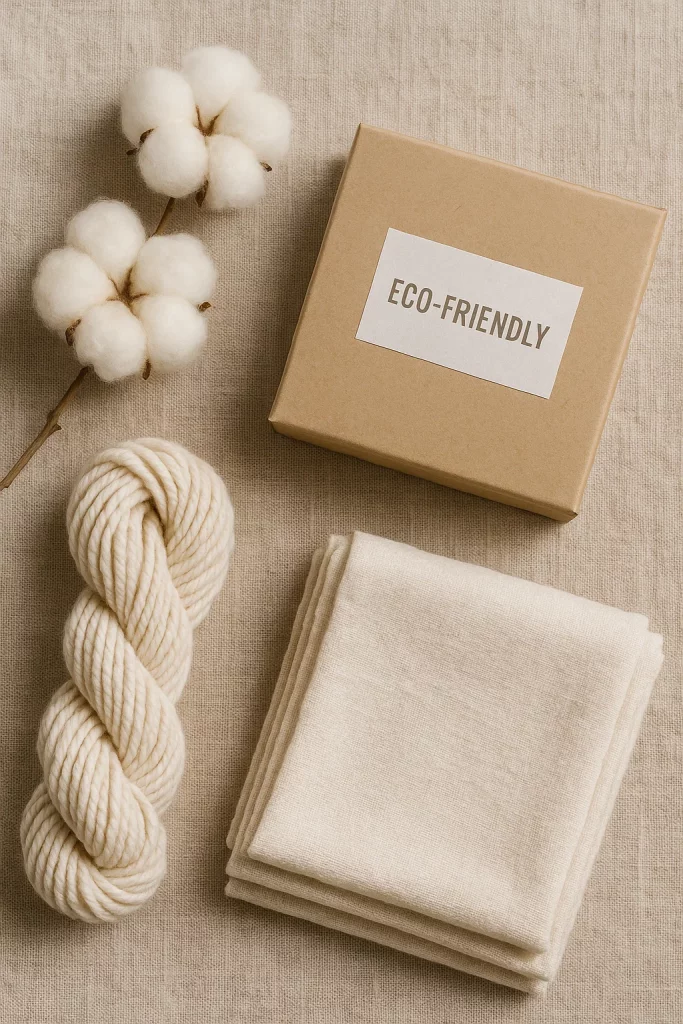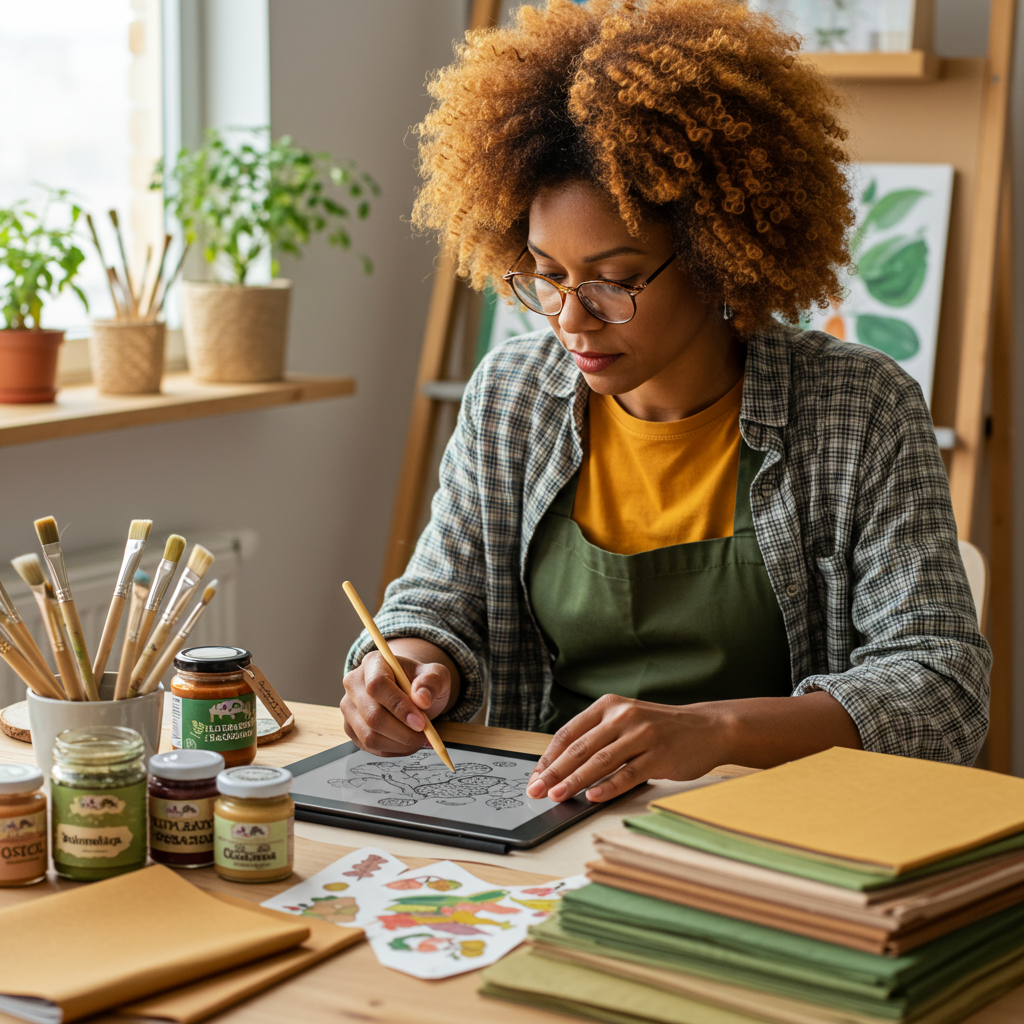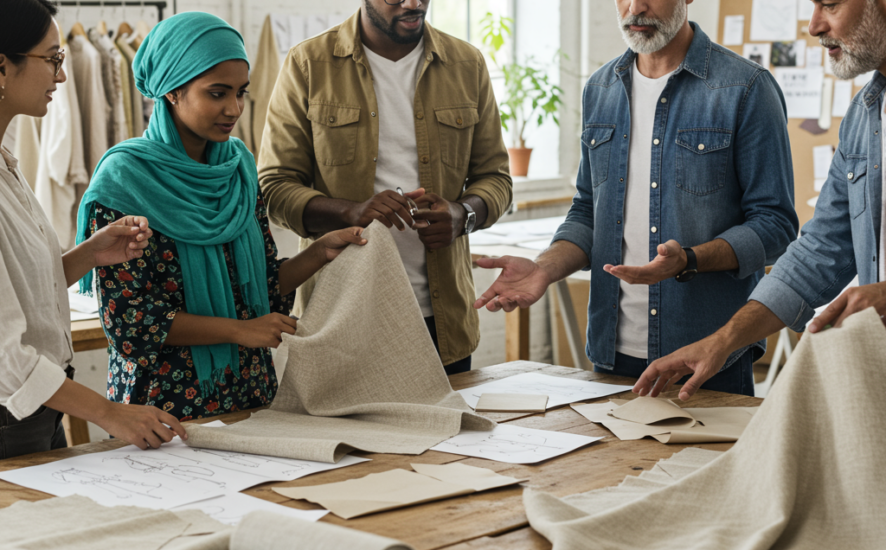In recent years, the term ‘sustainable fashion’ has become a buzzword in the UK and beyond. But what does it truly mean in today’s fast-paced, consumer-driven world? With growing concerns about climate change, ethical production, and the environmental impact of the fashion industry, sustainable fashion is no longer just a trend—it’s a necessity. In this blog post, we’ll dive deep into what sustainable fashion means in 2025, why it matters, and how you can embrace it with personalised, eco-friendly choices from brands like Contrado. Whether you’re a conscious consumer or an independent designer, this guide will provide actionable insights to help you make a difference.
The Evolution of Sustainable Fashion
The fashion industry has long been criticised for its environmental footprint. From excessive water usage in textile production to the staggering amount of clothing ending up in landfills, the need for change has never been more urgent. Sustainable fashion, often referred to as ‘eco-fashion,’ emerged as a response to these issues, focusing on reducing harm to the planet while prioritising ethical practices.
Today, sustainable fashion encompasses a broader spectrum. It’s not just about using organic cotton or recycled materials—it’s about rethinking the entire lifecycle of a garment, from design to disposal. This includes fair wages for workers, minimal waste in production, and creating timeless pieces that don’t follow fleeting trends.
Why Sustainable Fashion Matters Now More Than Ever
The statistics are staggering: the fashion industry is responsible for approximately 10% of global carbon emissions, more than international flights and maritime shipping combined. Additionally, millions of tonnes of clothing are discarded annually, much of which is non-biodegradable. Here’s why adopting sustainable fashion practices is critical:
- Environmental Impact: Reducing water pollution, carbon emissions, and textile waste helps protect ecosystems.
- Ethical Responsibility: Supporting fair labour practices ensures workers are treated with dignity.
- Consumer Demand: A growing number of UK shoppers are prioritising brands that align with their values.
At Contrado, we’re proud to champion sustainability by producing personalised products on demand. This means no overproduction, less waste, and a smaller carbon footprint—all while delivering high-quality, custom-made fashion and homeware.
Key Pillars of Sustainable Fashion
Sustainable fashion isn’t a one-size-fits-all concept. It’s built on several key principles that work together to create a more responsible industry. Let’s break them down:
1. Ethical Production
This focuses on fair treatment of workers across the supply chain. From safe working conditions to fair wages, ethical production ensures that the human cost of fashion is minimised. At Contrado, we maintain strict standards to ensure our manufacturing processes align with ethical practices.
2. Eco-Friendly Materials
Using sustainable materials like natural cotton, bamboo jersey, or recycled poly fabrics reduces the environmental impact of fashion. These materials are often printed using OEKO-TEX Standard 100 certified inks and require less water and energy during production compared to conventional fabrics — all while being produced locally in our London factory.
3. Circular Fashion
The concept of circular fashion promotes designing products with their end-of-life in mind. This includes creating garments that can be repaired, reused, or recycled. It’s about moving away from the ‘throwaway culture’ that dominates fast fashion.
4. Slow Fashion
Slow fashion encourages consumers to buy fewer, higher-quality pieces that last longer. It’s about investing in timeless designs over trendy, disposable items. Personalised products, like those offered by Contrado’s custom clothing range, allow you to create unique pieces that hold sentimental value and stand the test of time.

How to Embrace Sustainable Fashion in Your Everyday Life
Transitioning to a more sustainable wardrobe doesn’t have to be overwhelming. Here are some practical steps to get started:
- Shop Mindfully: Before buying, ask yourself if you really need the item. Opt for versatile pieces that can be styled in multiple ways.
- Support Ethical Brands: Research brands’ sustainability policies. Look for transparency in their supply chain and production methods.
- Choose Personalised Products: Custom-made items, like those from Contrado, are made to order, reducing the risk of overproduction and waste.
- Care for Your Clothes: Wash garments at lower temperatures, repair instead of replace, and store them properly to extend their lifespan.
- Second-Hand Shopping: Explore charity shops or online marketplaces for pre-loved clothing. It’s an affordable way to reduce demand for new production.

Case Study: Contrado’s Commitment to Sustainability
At Contrado, sustainability is at the heart of everything we do. As a London-based print-on-demand company, we empower independent artists and designers to bring their ideas to life without the environmental burden of mass production. Each product—whether it’s a personalised t-shirt, scarf, or piece of homeware—is crafted only when an order is placed. This approach eliminates excess stock and minimises waste.
We also prioritise high-quality materials and ethical manufacturing practices. By working closely with our supply chain, we ensure that every step, from design to delivery, aligns with our commitment to the planet and people. Curious to learn more? Check out our sustainability initiatives to see how we’re making a difference.
Sustainable fashion today is about more than just buying ‘green’—it’s a mindset shift towards mindful consumption, ethical choices, and long-term impact. Whether you’re designing a unique piece with Contrado or simply rethinking how you shop, every small step counts. Let’s work together to redefine fashion as a force for good. Ready to start your sustainable journey? Explore our range of personalised products and create something truly meaningful today.

